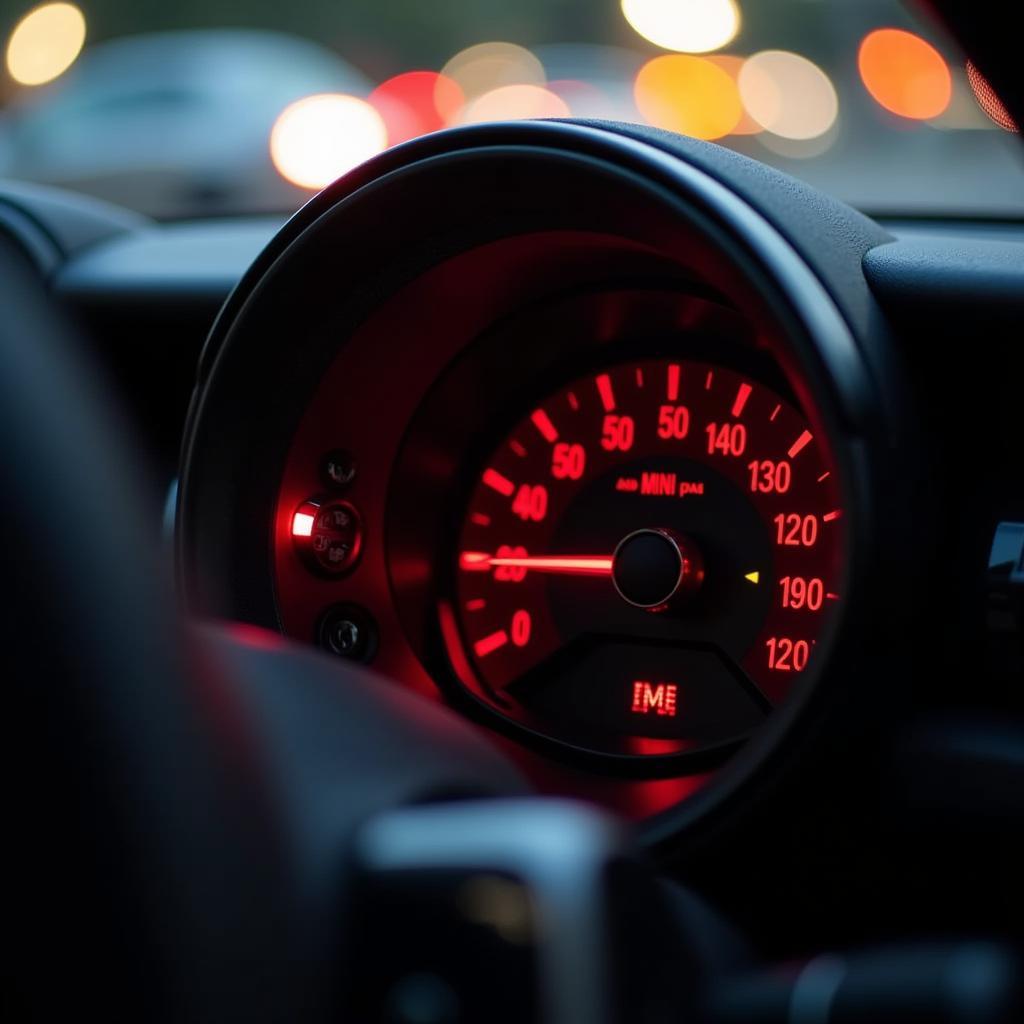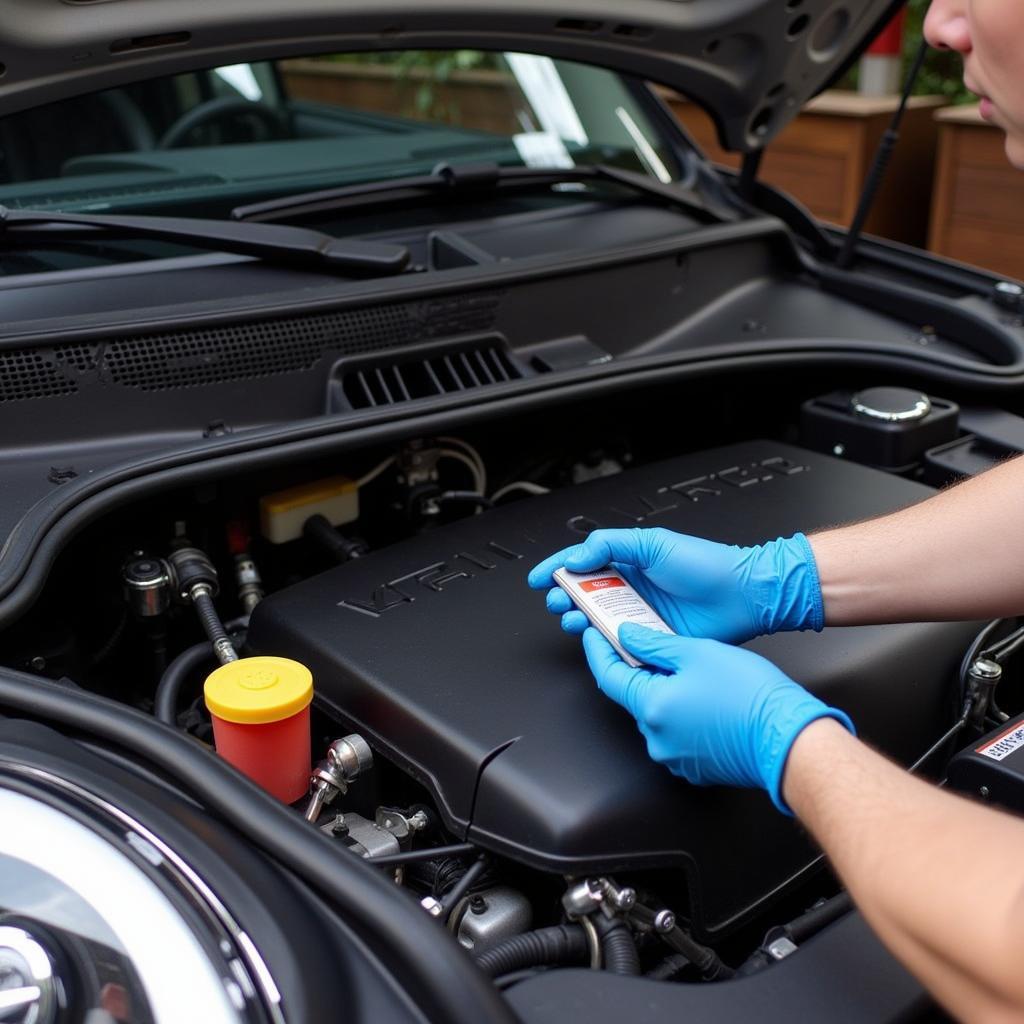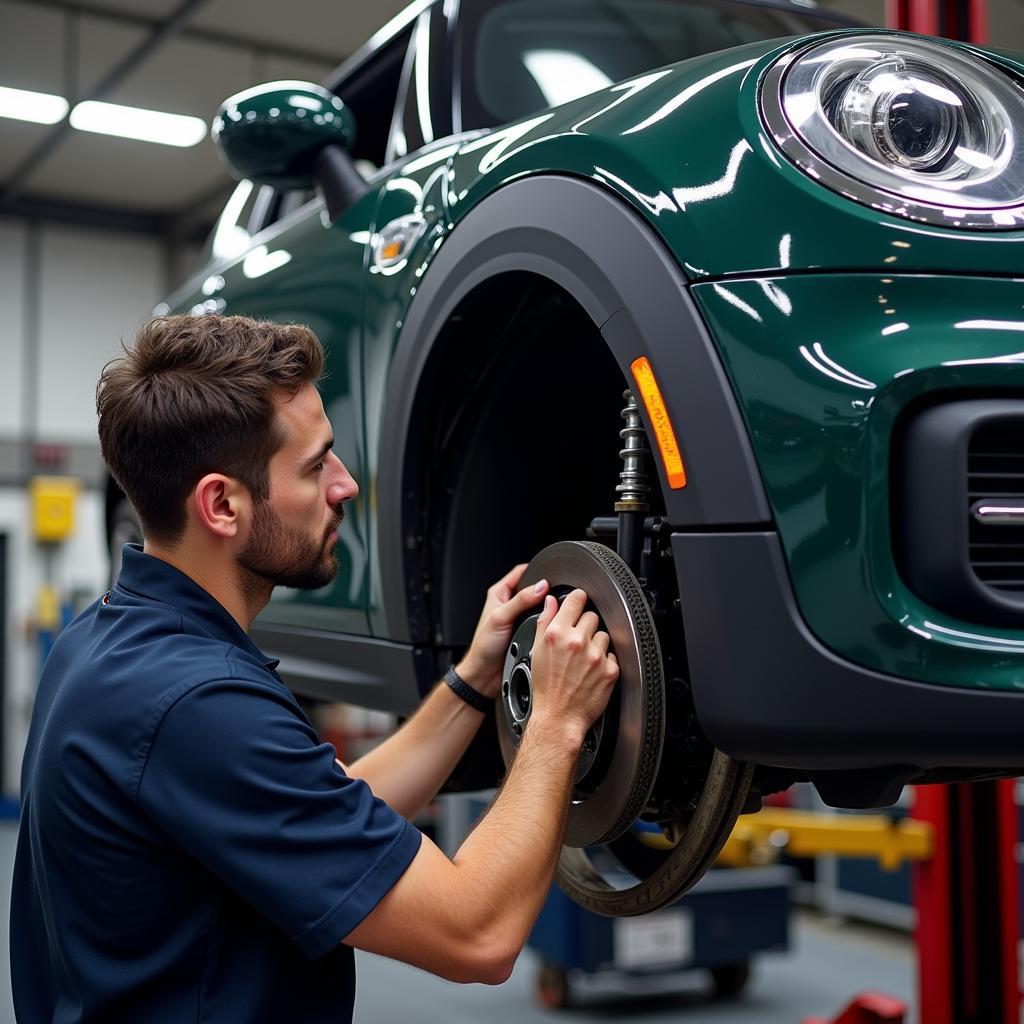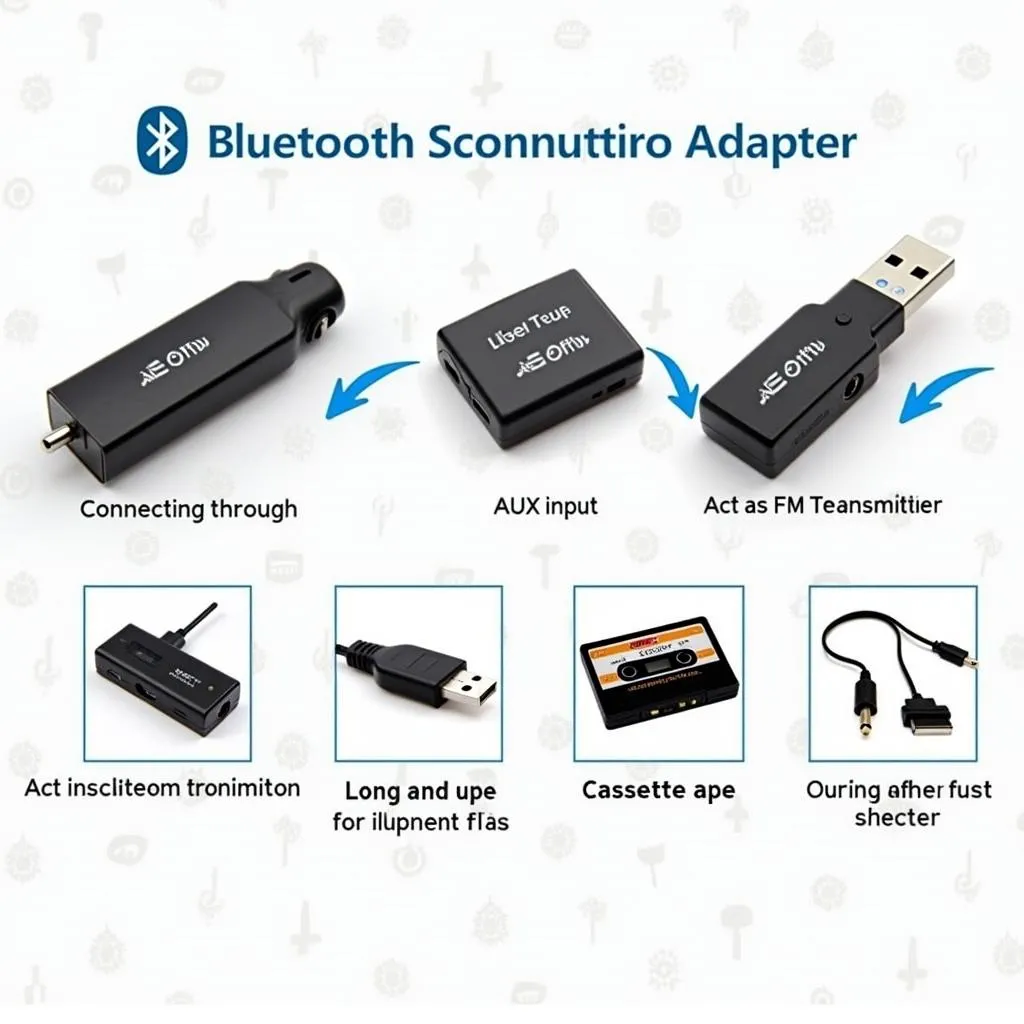Seeing a red brake warning light illuminate on your Mini Cooper’s dashboard can be a nerve-wracking experience. This crucial warning signal indicates a potential issue with your vehicle’s braking system that requires immediate attention. Ignoring this warning could jeopardize your safety and the well-being of other drivers on the road. This article serves as a comprehensive guide to understanding the various reasons behind a Mini Cooper red brake warning lamp and provides potential solutions to address them.
 Mini Cooper Dashboard with Brake Warning Light
Mini Cooper Dashboard with Brake Warning Light
Understanding Your Mini Cooper’s Braking System
Before delving into the potential causes of a red brake warning light, it’s essential to understand the basics of your Mini Cooper’s braking system. Modern Mini Coopers are equipped with sophisticated braking systems that consist of various interconnected components, including:
- Hydraulic System: This system uses brake fluid to transmit force from the brake pedal to the brake calipers, ultimately stopping the vehicle.
- Electronic Brake-force Distribution (EBD): This system automatically adjusts the braking force applied to each wheel, ensuring optimal braking performance and stability.
- Anti-lock Braking System (ABS): ABS prevents the wheels from locking up during hard braking, allowing the driver to maintain steering control.
- Electronic Stability Control (ESC): ESC helps maintain vehicle stability during cornering or slippery conditions by selectively applying brakes to individual wheels.
A fault within any of these systems can trigger the red brake warning lamp on your dashboard.
Common Causes of a Mini Cooper Red Brake Warning Lamp
There are several reasons why your Mini Cooper’s red brake warning light might be illuminated. Some common causes include:
1. Low Brake Fluid Level
One of the most common and straightforward reasons for the brake warning light is low brake fluid. Brake fluid is the lifeblood of your braking system, and a leak or significant drop in fluid level can hinder its performance.
What to do: If you suspect low brake fluid, safely park your vehicle and check the brake fluid reservoir level. If the fluid level is below the minimum mark, it’s crucial to add the appropriate DOT 3 or DOT 4 brake fluid (as recommended in your owner’s manual) to the reservoir. However, it’s vital to identify and address the underlying cause of the low brake fluid, such as a leak.
 Checking Brake Fluid in a Mini Cooper Engine Bay
Checking Brake Fluid in a Mini Cooper Engine Bay
2. Worn Brake Pads
Brake pads are designed to wear down over time. When the friction material on the brake pads wears thin, it can trigger the brake warning light.
What to do: If you suspect worn brake pads, it’s essential to have them inspected by a qualified mechanic immediately. Driving with worn brake pads can severely compromise your braking ability and potentially damage other brake components.
3. Faulty Brake Sensors
Modern Mini Coopers are equipped with brake pad wear sensors that monitor the thickness of the brake pads. These sensors are designed to trigger the brake warning light when the pads reach a certain wear limit.
What to do: If a faulty sensor is detected, it will need to be replaced.
4. Issues with the ABS System
A malfunctioning ABS system can also trigger the red brake warning light. The ABS system relies on various sensors and components, and a fault in any of these can disrupt its operation.
What to do: Diagnosing ABS issues often requires specialized equipment. It’s best to have your vehicle inspected by a qualified mechanic who can read the ABS fault codes and pinpoint the problem.
5. Other Potential Causes
- Faulty brake caliper: A seized or leaking brake caliper can prevent the brakes from releasing properly, leading to brake drag and potentially triggering the warning light.
- Damaged brake lines or hoses: Leaks in the brake lines or hoses can result in a loss of brake fluid pressure, compromising braking performance.
- Master cylinder failure: The master cylinder is a crucial component that converts brake pedal pressure into hydraulic pressure. A failing master cylinder can lead to a soft or spongy brake pedal feel and potentially trigger the warning light.
 Mechanic Inspecting Mini Cooper Brakes on a Lift
Mechanic Inspecting Mini Cooper Brakes on a Lift
Diagnosing the Problem: Remote Software Solutions for Modern Mini Coopers
Modern Mini Coopers are equipped with advanced onboard diagnostic systems. These systems can provide valuable information about the potential cause of the red brake warning light. In some cases, remote software solutions can be utilized to diagnose and even resolve the issue.
Remote Diagnostics: Qualified technicians can remotely access your Mini Cooper’s onboard diagnostics system to retrieve fault codes, analyze sensor data, and pinpoint the root cause of the brake warning light.
Remote Software Updates: In some instances, software glitches or outdated software versions can trigger false warning lights. Remote software updates can often address these issues without the need for a physical visit to a workshop.
“Remote diagnostics and software updates have revolutionized the way we approach car repairs,” says John Smith, a certified automotive engineer specializing in Mini Cooper diagnostics. “These technologies allow us to quickly identify the root cause of a problem, saving car owners valuable time and money.”
Conclusion: Prioritizing Safety and Seeking Professional Help
The red brake warning light in your Mini Cooper should never be ignored. Addressing the underlying issue promptly is crucial to ensuring your safety and the safety of others on the road. While some causes, such as low brake fluid, can be addressed with simple checks, others require professional expertise. If you’re unsure about the cause of the warning light or uncomfortable performing repairs yourself, it’s always best to err on the side of caution and consult a qualified Mini Cooper mechanic. Remember, a well-maintained braking system is paramount for a safe and enjoyable driving experience.

